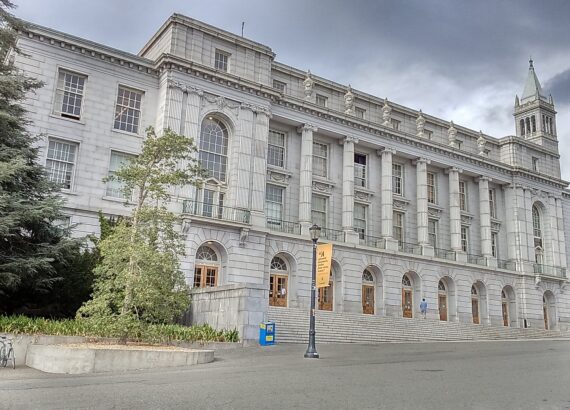Inside Job
Following a friend’s recommendation, I sat down and watched “Inside Job”, a 2010 documentary by Charles Ferguson about the role of the financial sector in the recession. At least that’s the neutral way of putting it. It would be more accurate to say that “Inside Job” is about how the financial sector (plus some academic and government helpers) caused the recession. The interviewer was impressive in that he seemed to succeed in annoying many of the people who disagreed with his views. I expected the movie to be more neutral, but it definitely felt more like a Michael Moore documentary than like a Discovery Channel one. That said, the line-up of people that Charles Ferguson interviewed (I assume it was him) was impressive, from John Campbell and Dominique Strauss-Kahnto Glenn Hubbard, Elliot Spitzer, and Paul Volcker.
Was this an accurate portrayal of what happened? I have no idea. The movie seemed to paint the crisis as some kind of conspiracy theory. My personal opinion is that it was more the complexity and instability of the system that was responsible, rather than any deliberate action on behalf of the financial companies to profit from the housing crash. I don’t think they really saw this coming. Also, I think we should not forget that the clients of these companies did not inquire about company practices as long as they were making money. While there was predatory lending, there were also people who bought houses they clearly couldn’t afford. Placing all of the blame on Wall Street is neither fair nor beneficial for policy.
Some things I agreed with:
- Economists probably don’t take conflict of interest disclosure seriously enough. I don’t think this is ill-intentioned in most cases. We like to think of ourselves as hyper-rational and not subject to conscious or unconscious influence of money. But regardless of what we think, disclosure is key for maintaining credibility.
- Banks/companies shouldn’t get that big. The moral hazard problem grows with company size.
- There is a lot of corruption, fraud and macho-ism on Wall Street. I’m not sure limiting salaries would fix that.
Some general highlights from the movie:
- Charles Ferguson interviews (a) a therapist who counsels many Wall Street employees and discusses their pervasive drug and prostitution habits and (b) a woman who ran a prostitution ring catering to these employees and who claims that many paid using company accounts.
- To some extent, trading is gambling. But interestingly enough, gambling (including online poker, which many would agree requires skill) is illegal in the US. And I’m not saying we should make trading illegal.
- Charles Ferguson discusses the failure of academics and such to disclose conflicts of interest. Charles Ferguson fails to disclose that the more outrageous he makes Wall Street/academia/government seem, the more money and prizes he is likely to get for this movie.
Some annoying parts:
- The movie showed a lot of people saying “um” and being silent. I thought that was a little cheap and not very informative. I guess it was supposed to be dramatic.
- The line that Wall Street “has corrupted the study of economics itself” really pissed me off. First of all, the free market laissez-faire roots of economics go way back, before Wall Street became what it is/was in the past few decades. Second, if anything, economics has been moving further from the rational model. There’s even behavioral finance now.
- The narrator (Matt Damon!) was really focused on the fact that financial firms were “betting against what they were selling” without explaining what that meant. It’s one thing to insure yourself by buying a little bit of a hedge, it’s another to put all your money into the stock that does well when your client loses. It wasn’t clear to me how much of the former v. latter there was. We don’t get annoyed that grocery stores sell vegetables AND heart-attack-inducing pizzas, so the fact that a firm buys and sells different types of securities, some of which may be in conflict with each other, should not necessarily set off alarms.
- Charles seems to imply that the solution is simple – regulate the hell out of Wall Street. But there’s no “regulation box” where you just pull one out and it works. Suppose every time you held elections in a country, there was widespread fraud. No one would conclude that we should go back to a dictatorship. Just because a system isn’t working in its current form doesn’t mean you should eliminate the system.
OK, this has become way longer than I intended. One concluding thought provoked by the movie: are financial engineers/traders paid too much? This is not a straightforward answer at all, even if we accept the premise of a perfect market. Economic theory states that a firm will pay a worker his marginal value to the firm. In some cases, that will coincide with the worker’s value to society. For example, if investors are good at identifying socially beneficial projects and creating lots of value, they of course deserve high salaries. But if all the worker is good at is appropriating money from other sources (= playing a zero-sum game), then the value to the firm can be huge, while the social value is small, zero, or even negative. For example, if Somalian pirates are paid a lot by their ship captains, their salaries are clearly not equal to their social value (which is arguably negative). Does anyone know of any good research in this area?




Comments are closed.